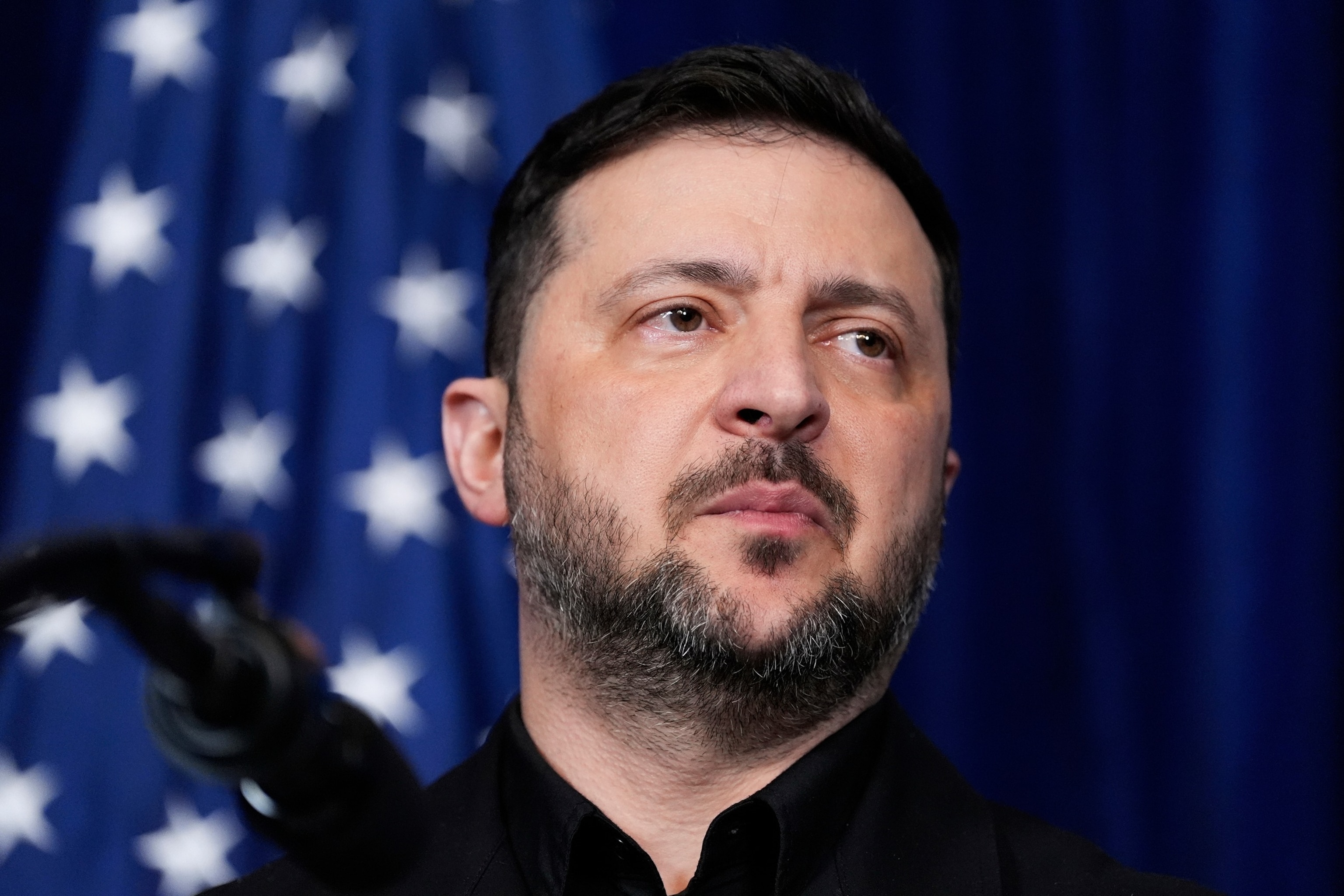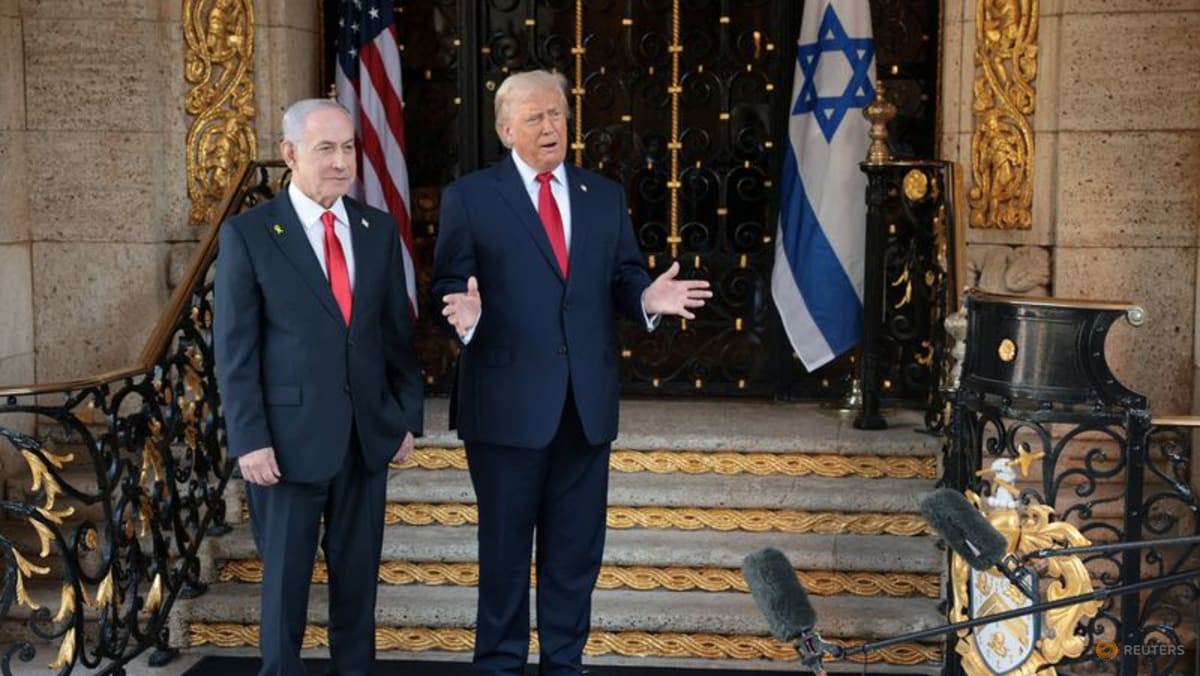White House avoids weighing in on possible Israeli response to Iran’s attack

The White House on Monday carefully avoided weighing in on any possible Israeli response to Iran’s attack over the weekend but also stressed the U.S. didn’t want to see further escalation in the region.
“This is an Israeli decision to make — whether and how they’ll respond to what Iran did on Saturday,” National Security Council spokesman John Kirby told reporters at the daily press briefing. “And we’re going to leave it squarely with them.”
ABC News Chief White House Correspondent Mary Bruce followed up by asking if the administration was making any suggestions to Israel officials on how to react.
“We are not involved in their decision-making process about a potential response,” Kirby responded.
Asked if President Biden specifically asked Prime Minister Benjamin Netanyahu to show restraint toward Iran, Kirby would only say Biden relayed to the Israeli leader that Saturday night highlighted Israel’s military superiority over Iran as well as the coalition of partners ready to defend Israel.
“The president urged the prime minister to think about what that success says all by itself to the rest of the region,” Kirby said.
“All I’ll say is that the president from the beginning of this conflict and Oct. 7 has been steadfast and consistent,” he continued. “We don’t want to see a war with Iran. We don’t want to see a broader regional conflict. We will do what we have to do to defend Israel.”
President Joe Biden, right, meets with Iraq’s Prime Minister Shia al-Sudani in the Oval Office of the White House, April 15, 2024.
Alex Brandon/AP
Biden had a similar message when he spoke briefly while meeting with the Iraqi Prime Minister Mohammed Shia al-Sudani in the Oval Office, where the two were set to discuss the importance of their partnership at a critical moment.
“Iran launched an unprecedented aerial attack against Israel and we mounted an unprecedented military effort to defend Israel,” Biden said. “Together with our partners, we defeated that attack.”
“The United States is committed to Israel’s security,” the president continued. “We’re committed to a cease-fire that will bring the hostages home and preventing conflict from spreading beyond what it already has.”
Biden did not take questions or elaborate on what he believed should happen next as Israel considers how to react to Iran’s attack as he met with Iraq’s al-Sudani, though the administration’s made clear it doesn’t want a wider war.
Netanyahu met Monday with his war cabinet to discuss potential responses to Iran’s attack. An Israeli official said after the meeting there is agreement that Israel must respond to Iran’s attack over the weekend but “the question is how.”
Senate Republican leader Mitch McConnell chastised the Biden administration for its response to the situation so far, saying Biden is trying to “tie the hands of an ally under attack.”
“The public criticism of Israel by senior administration officials undoubtably influences the decisions of Israel’s adversaries,” McConnell said in a speech on the Senate floor. “If the president’s commitment to a vital ally were ‘ironclad’ his response to this weekend’s attack would not be to lecture her leaders against responding in self-defense. Would an American commander in chief fail to respond if an adversary launched 300 missiles at American soil?”
McConnell added, “It’s time for the commander in chief to stand by our allies and stand up to our adversaries.”
The April 13 attack on Israel was viewed as retaliation for a military strike on what Iran called its consulate in Damascus, Syria. The strike killed seven people, including a top Iranian commander. The Pentagon said earlier this month that Israel was behind the strike, though Israel has not claimed responsibility.
On Monday, Israel’s Chief of the General Staff Herzi Halevi visited an airbase where Iranian missiles struck over the weekend, stating Iran’s actions “will be met with a response.”
President Biden, a day before Iran’s actions, delivered a blunt message to the country: “Don’t.”
Asked about Iran’s apparent defiance despite Biden’s warning, Kirby said the U.S. stepping in to aid Israel during Saturday’s attack should send a clear message that “when the president says we’re going to take our commitments to the region seriously and we’re going to help Israel defend itself, we got skin in the game and we prove it.”

National Security Communications Adviser John Kirby speaks during the daily briefing in the Brady Briefing Room of the White House, April 15, 2024.
Andrew Caballero-Reynolds/AFP via Getty Images
Kirby also vehemently denied reports that Iran provided the U.S. advance notice of its plans to strike Israel. He described such a narrative as “ludicrous” and “categorically false.”
“Iran never delivered a message giving us the time and the targets,” he said.
He said Israel is in a stronger position and Iran weakened after Israel, with the help of U.S. and other partners, fended off hundreds of missiles and drones unleashed by Tehran over the weekend.
Kirby said “much of the world today is standing with Israel” while G7 partners, at President Joe Biden’s direction, are working on new, multilateral sanctions to target Iran’s missile program.
“That’s the upshot here: A stronger Israel, weaker Iran and more unified alliance of partners,” Kirby told reporters. “That was not Iran’s intent when it launched this attack on Saturday night, not even close. And again, they failed. They failed utterly.”
ABC News’ Allison Pecorin and Dana Savir contributed to this report.
Source: abc news















